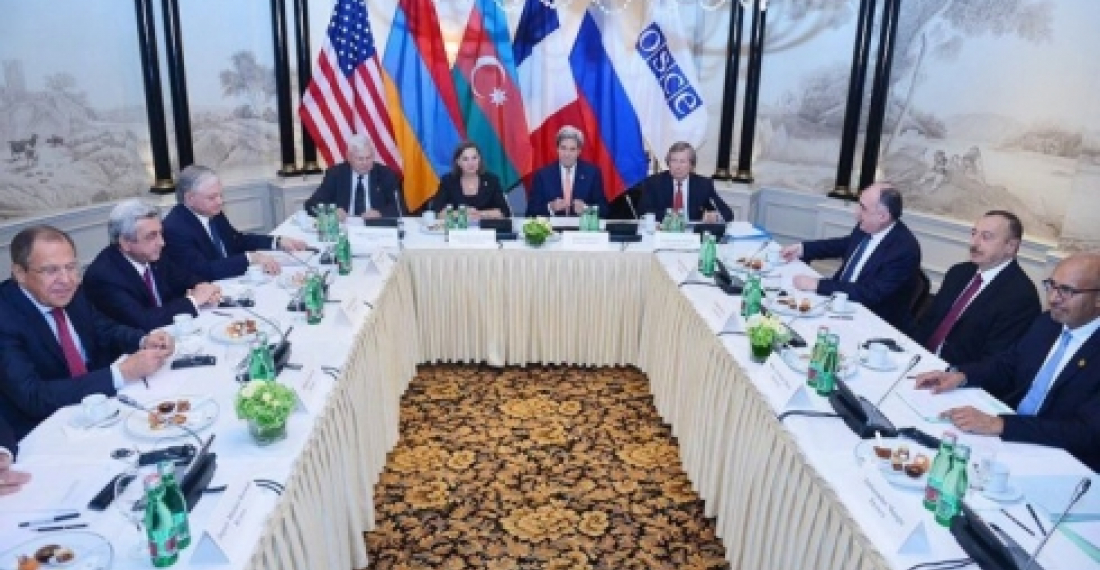The ceasefire should be observed in Nagorno-Karabakh and the mechanism monitoring it should be expanded, the presidents of Armenia and Azerbaijan agreed on Monday evening in Vienna.
"To reduce the risk of further violence, [the presidents] agreed to finalize in the shortest possible time an OSCE investigative mechanism," said the OSCE Minsk Group in a statement released immediately after the meeting.
Serzh Sargsyan and Ilham Aliyev were meeting for the first time since a bout of fighting which killed dozens at the beginning of April, the worst violence in the region since 1994. United States Secretary of State , John Kerry, and Russian Foreign Minister, Sergei Lavrov, attended the meeting alongside Harlem Desir, France’s minister for European affairs.
"The Presidents also agreed to the expansion of the existing Office of the Personal Representative of the OSCE Chairperson in Office," the Minsk Group statement said. "Finally, they agreed to continue the exchange of data on missing persons under the auspices of the International Committee of the Red Cross (ICRC) to which the Presidents committed during the Paris summit of October 2014."
The co-chairing countries’ three ambassadors to the Minsk Group – James Warlick, Igor Popov and Pierre Andrieu – were all in attendance, as was Anjey Kasprzyk, personal representative of the OSCE chairperson in office. Earlier in the evening, presidents Aliyev and Sargsyan met individually with Federica Mogherini, the Euroepan Union’s high representative for foreign affairs.
Dozens of soldiers and civilians were killed in fighting between 2 and 5 April, when Russia brokered an informal cessation of hostilities. There have been several deaths since then, with both sides accusing the other of using high-tech weaponry to breach the ceasefire on a daily basis.
The two presidents have agreed that a further round of talks will take place in June, with the aim of resuming negotiations on a permanent settlement.
"They reiterated that there can be no military solution to the conflict. The Co-Chairs insisted on the importance of respecting the 1994 and 1995 ceasefire agreements. The Presidents reiterated their commitment to the ceasefire and the peaceful settlement of the conflict," the OSCE statement said.
SOURCE: commonspace.eu and agencies
PHOTO: the meeting in Vienna between the Presidents of Armenia and Azerbaijan on 16 May 2016.







